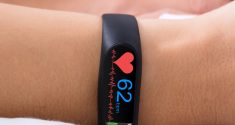Our circadian rhythm is one of the most important drivers of our physical and mental health. Although getting enough sleep is crucial to keeping a well-regulated internal clock, on its own, it is not enough. Daily exposure to bright light is also a piece of the puzzle. A new study suggests that this effect on internal clocks may have even more far-reaching health effects, finding that intense light protects heart health.
Heart Disease: A Growing Killer

Although there are many known contributors to heart disease, such as diet and lack of exercise, our circadian rhythm also appears to play a role. Having a dysregulated circadian rhythm can increase your risk of heart attack and stroke, with particularly serious effects on the hearts of men. Shift workers appear to be at especially high risk, often suffering from high blood pressure, high cholesterol and other disorders that increase their chances of death from heart disease.
New Study Finds Intense Light Protects Heart Health
If the circadian rhythm is important to heart health and light is important to the circadian rhythm, it makes sense that light can positively affect heart health. Researchers at the University of Colorado set out to confirm this hypothesis. Scientists took mice that had suffered from a heart attack. One group was exposed to intense light for a specific time period every day while the other was not. After just a week of this treatment, the mice who received the light exposure had better outcomes including improved healing and fewer long-lasting effects.
This effect was not just seen in mice. After seeing the effects on rodents, researchers took a group of human volunteers and exposed them to 10,000 lumens of bright light every day for five days. Their blood work showed that they were experiencing many of the same positive changes seen in mice.
How can bright light have this type of effect on heart health? The answer appears to lie in the actions of a circadian rhythm gene known to scientists as PER2.
How Light Affects the Cardiovascular System
PER2 is a gene that is expressed in the brain on a circadian schedule. When this gene is activated, it stimulates cells to produce certain proteins, particularly ones involved in tissue repair. Exposure to bright light appears to dramatically increase the activity of this gene.
When this gene is stimulated with bright light, the tissues of the heart are flooded with cardiac adenosine, a biochemical that regulates blood flow. The cells of the heart are less likely to experience long-term damage from the lack of oxygen caused by heart attacks and other cardiac events. In addition, the metabolism speeds up slightly, allowing for faster healing.
Researchers note that the intensity of light appears to matter more than the duration of the exposure. The mice in this experience were given just 30 minutes a day of light therapy. Thus, people in darker Northern climates may be able to reduce their heart attack risk with a powerful lamp even if they do not have access to long periods of bright light every day.
People who have had heart attacks are placed on special diets and a long list of medications, all of which have been shown to reduce their risk of future complications. This new research hints that soon, daily exposure to bright light may be part of this regimen.
Lifestyle Choices to Prevent Heart Disease

- Eat a healthy diet, with plenty of healthy unsaturated oils, plant-based foods, and low sodium.
- Get exercise every day, including strenuous exercise several times a week.
- Make time for seven to nine hours of sleep every night.
- Keep a healthy weight.
- Avoid alcohol, tobacco and other substances that have been shown to damage the tissues of the heart.
- Manage your stress, taking the time needed to maintain good mental health and low stress levels.
- Treat your cholesterol levels and blood pressure if these are high.
Heart disease remains a top cause of death throughout the developed world. Although there is no way to guarantee you will always have a healthy heart, there are many natural ways to increase your chances of living a long and healthy life.







